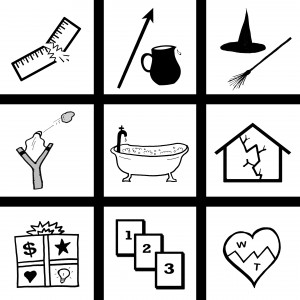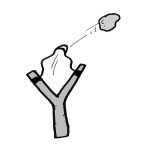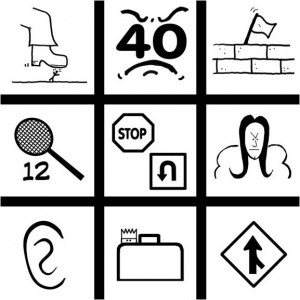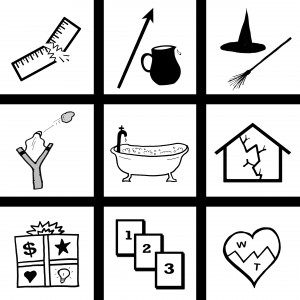 There are three primary Monarchs (or Kings) who ruled over God’s people in the next portion of Israel’s history. The first king was Saul. In the last chapter we learned that Saul was a humble, gracious servant. He brought God’s people together at a critical moment when they wanted to tear each other apart. King Saul started his faith journey so well, but as Ruler, his reign began to break as he drifted away from God.
There are three primary Monarchs (or Kings) who ruled over God’s people in the next portion of Israel’s history. The first king was Saul. In the last chapter we learned that Saul was a humble, gracious servant. He brought God’s people together at a critical moment when they wanted to tear each other apart. King Saul started his faith journey so well, but as Ruler, his reign began to break as he drifted away from God.
There were two tipping points in Saul’s faith collapse. First, he refused to wait on God for a military battle by offering a sacrifice himself – an act that only a priest or prophet was permitted to perform. Saul was basically saying, “I can’t wait on God. I know better than Him. I will approach God on my own terms.” The prophet Samuel warned Saul of his rebellion and pride, and spelled out the next assignment very clearly. Saul was to capture an evil Philistine city and NOT take the animals as booty. Samuel arrived after the battle to find an overjoyed Saul, bragging about his obedience. Samuel quickly saw through the lie, hearing “the bleating of sheep” — proof that Saul had taken the forbidden spoils of war. The King had decided that he could “bend God’s law” to suit him, rather than “bending His heart toward God.” Saul was a rule bender.

Saul refused to fully admit he was wrong and find God’s forgiveness. Instead, he became angry, vengeful, and furious at Samuel, God, or anyone in his path. He began to lose his mind. He decided to take out his anger on a soldier in his army who was gaining lots of popularity: a man named David.
This final straw of disobedience prompted Samuel to tell Saul that God was giving the Kingdom to a new leader named David. Saul was so filled with envy and rage against the young and popular upstart, that he started hunting David. During a music concert, David was playing music for Saul to help calm him down after a depression had overcome him. Saul jealously threw a spear, and David dove out of the way, barely escaping death. Saul’s son, Jonathan, and daughter, Michal, sided with David and helped him escape. Saul hunted him for years; but David continued to offer the king forgiveness and asked his father-in-law to “stop running and return to God.”

Traveling covertly across the countryside, David infiltrated Saul’s camp from a nearby cave and “stole” the king’s spear and water jug. The next morning David revealed that he had taken the royal belongings. David reminded Saul that he could have killed the sleepy Saul while taking his spear, but chose to spare him. David hoped that this act of grace would transform the king’s heart. Saul was contrite for a while; but his jealousy quickly returned.
Saul’s life continued to spiral out of control. Later in his life, the prophet Samuel died. Saul desperately wanted to contact Samuel’s spirit to hear from God. God forbade speaking to witches, astrologers, and others who claim to speak with the dead. And Saul had even outlawed these superstitious practices in his early days as king. But now, with his moral compass broken, he sought counsel from a witch living on the outskirts of town. God warned Saul that through this final act of rebellion he and his sons would be in danger the next day. Just as God predicted, Saul was killed in battle, completing the sad, downward spiral born from jealousy.

David would be the next king of Israel. He had grown up with many older, powerful brothers who served in the war under King Saul. David was a shepherd who took care of the family flock. He spent his time alone in the fields with the sheep, writing songs to God and fighting off lions and bears. He played the harp and perfected the use of a slingshot protecting his animals. One day the prophet Samuel arrived to anoint one of “Jesse’s boys” as the next king. David was such a runt that his father didn’t even invite him to the ceremony. Samuel sensed that God wanted David to be the next king, because “God doesn’t look at the outward appearance, but at the heart.” The runt was anointed the heir to the throne, and returned to the fields until time to reign. Sometime later, Jesse sent David to visit his brothers at the front with some provisions.

David found his brothers cowering – along with King Saul – under the threats of the Philistine champion Goliath. King Saul was so distant from God at this point that he couldn’t summon the courage to fight. The young shepherd offered to go after Goliath with his slingshot. His brothers and the king mocked his confidence. Eventually, though, the king decided to let him try, and David picked up some stones and ran to meet Goliath in battle. This was the first recorded instance of “rock and roll”: one rock rolled the giant and he had to Go-li-eth-down, forever. Goliath was killed, and the people of God were victorious. This was the beginning of David’s successful and popular career. David became the court musician. He married the king’s daughter, but eventually drew his father-in-law’s jealous rage.
Years later after Saul was killed, David took the throne and began a marvelous reign. He expanded the military might of Israel and moved the capital city to Jerusalem. He reunited the twelve tribes who had become scattered and divided over the years. David brought the Ark of the Covenant into the city as a symbol of God’s presence and call to worship. David became king and led his people back to God. He battled evil in the world and taught people to love, worship, pray, and sing to God. In fact, David wrote a book of songs, called Psalms, that is used to teach people how to pray during good times, bad times, or times when you need to return to God. Many of his songs made predictions about the coming Messiah. As a king, David never claimed to be the people’s rescuer or solution to their problems. Instead, he continually pointed the people to God, His law, and His coming Final Forgiver.
Later in his life, David became complacent. Instead of going out to war with his men, he stayed home. He saw a

woman in a BATH one night as he strolled the royal balcony. Interestingly, the woman was named Bath-sheba. David investigated and found that she was married. Despite this, he seduced her and slept with her anyway. King David discovered that her husband Uriah was one of his soldiers out fighting in the battlefield. David continued the affair with her, had Uriah killed, and lied about it for many months. Nathan the prophet showed up to confront David, telling the disobedient king to return to God. David stopped running and asked God for forgiveness. He apologized publicly and wrote a psalm that said, “Create in me a clean heart, oh God. Renew a right spirit within me. Cast me not away from thy presence, oh Lord.” God forgave David but reminded him that the consequences of rebellion would ripple through his family for the next generation. The next half of David’s life was filled with pain and sorrow. He also rebelled against God’s command to have only one wife, following the patterns of other nations who married many different women. These poor choices produced layers of family problems for the King.
Here’s a live teaching of 1 Samuel – 1 Kings:
For a free session of Godonomics, visit: http://www.godonomics.com/watch-session-5

